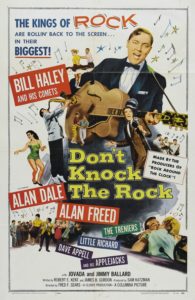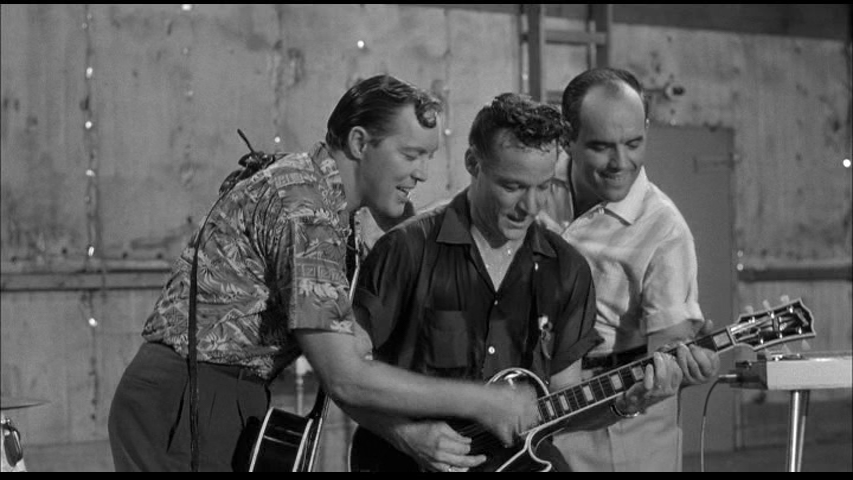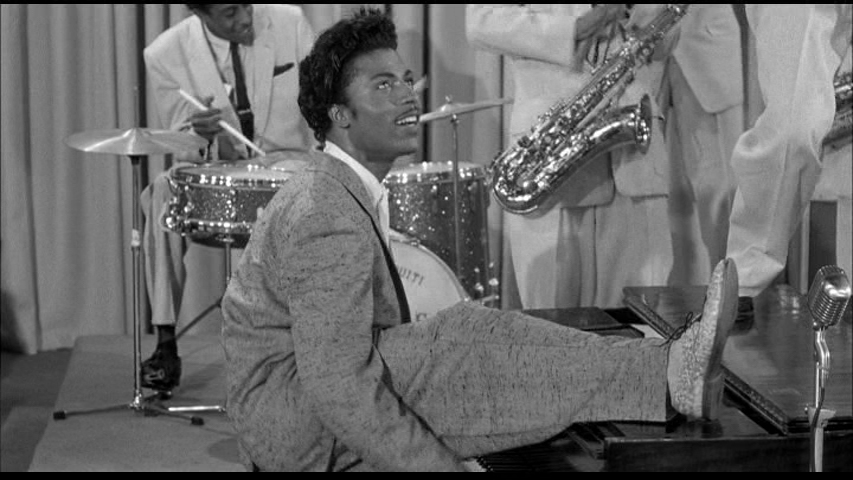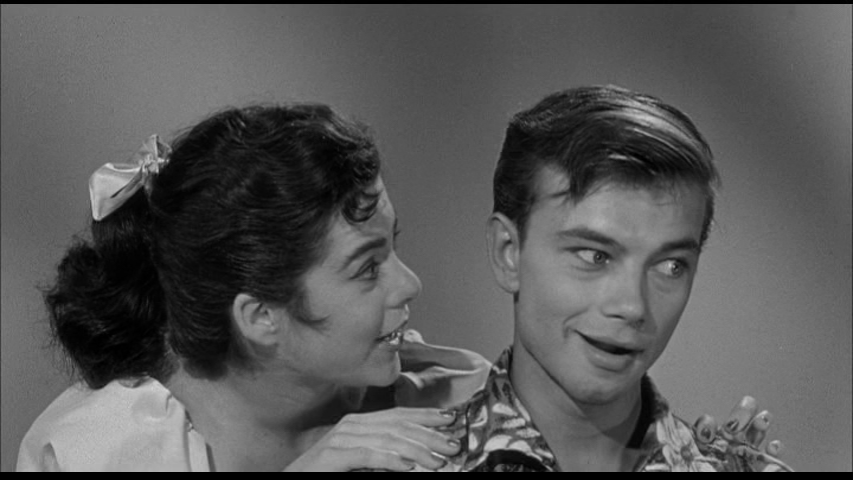“Rock ‘n roll is for morons!”
|

Synopsis:
A hot young crooner (Alan Dale) attempts to get away from clamoring crowds of groupies by returning to his hometown, where he learns that its conservative mayor (Pierre Watkins) and a local columnist (Fay Baker) disapprove of rock ‘n roll’s influence on youth. Things quickly become even more complicated when Dale falls for Baker’s daughter (Patricia Hardy), and the rock-loving teenage daughter (Jana Lund) of an influential townsman (George Cisar) repeatedly attempts to seduce Dale.
|
|
Genres:
- Generation Gap
- Morality Police
- Musicians
- Rock ‘n Roll
Response to Peary’s Review:
Modern film fanatics likely won’t have heard of crooner Alan Dale, who sings nicely but displays decidedly underwhelming acting chops in this companion piece to Rock Around the Clock (1956). The film’s most notable subplot involves a seductive underage teen (Lund) who literally won’t take no for an answer: if cell phones were around at that time, Dale would want to film their interactions as evidence on his own behalf. Of course, this “generation clash” flick is really all about showcasing key players in the rock ‘n roll “movement”, and to that end there are several enjoyable musical numbers by big names — however, it’s certainly not must-see viewing for anyone other than die-hard fans of this genre and era.
Redeeming Qualities and Moments:
- Several fun musical sequences


- Humorously over-the-top displays of cross-generational clashing

Must See?
No; skip this one unless you’re a fan of the musicians or up for a few chuckles. Listed as a Camp Classic in the back of Peary’s book.
Links:
|
One thought on “Don’t Knock the Rock (1956)”
First viewing. Not must-see – even those nostalgic for the period may find little here that’s all that satisfying.
Like similar films of the mid-’50s, this is little more than an advertisement for rock’n’roll. (It’s rather odd how most of the songs performed here all sound pretty much the same. It takes someone like Little Richard – singing ‘Tutti Frutti’ and ‘Long Tall Sally’ – to bring more personality into the swing of things.)
The film’s most interesting moment comes near the end – in which there’s a stage presentation designed to prove to disapproving parents that not only does culture change from era to era but that *they too* enjoyed their own ‘rebellion-through-art’ when they were younger.
The film is totally without camp value.